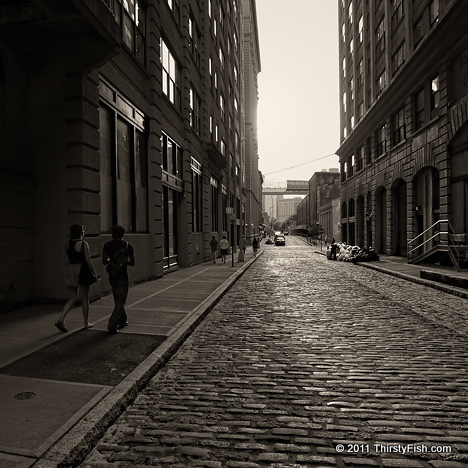DUMBO, New Belgian Block Paving

The original, historical Belgian block pavings around DUMBO were uneven and dangerous. Many sections were covered with broken asphalt. As the ongoing subsurface work to fix the drainage is completed, we are seeing the freshly re-paved Belgian block streets emerge. I am glad that it was decided to preserve the historic appearance of DUMBO streets; The texture of stone paving has an inherent aesthetic quality to it...
Belgian block pavements are often incorrectly called cobblestones. Cobblestone pavements were originally constructed using natural, large, rounded pebbles, collected from stream beds. In the nineteenth century, cobblestone was replaced with granite Belgian Blocks (setts) which were quarried or shaped to a regular form. Later, stone construction gave way to macadam and tarmac roads. At the beginning of the 20th century, asphalt became the standard. As things become more standardized and cheaper to construct, they seem to lose their aesthetic value; Cars and benches are two examples from prior posts.
Posted
- Sat 2011-09-10
Captured
- 2011-09-02
- Brooklyn, NY


